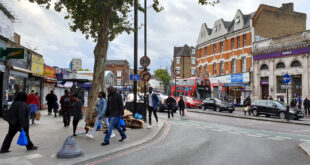The Blue Card, Europe’s answer to the US Green Card, is a work permit allowing high-skilled non-EU citizens to work and live in any country within the European Union, excluding Denmark and Ireland, which are not party to the scheme. Kai Dambach/InfoMigrants explains how it works.
The EU Blue Card is a residence permit issued to highly qualified persons from third countries planning to work in the EU. Its holders are granted benefits and securities, but the permits can be very difficult to obtain.
The EU Blue Card enables third-country nationals who are university graduates or who have a comparable qualification to receive a residence title for the purpose of working in the EU. Holders can apply for permanent settlement in Europe after a certain period of time.
Blue Card holders are allowed to bring a spouse, partner, children they have had with their spouse, and other relatives that are dependent on them. The holders also sponsor their family members’ permits.
Once an application is approved, the Blue Card is valid for between 1-4 years depending on the length of the applicant’s work contract. It can be renewed. After a Blue Card holder lives and works in a European country for two years, he/she is entitled to the same rights as citizens except for loans, grants and housing rights.
Who can apply for a Blue Card?
The Blue Card is for highly-qualified or skilled workers and researchers from non-EU-countries. The following conditions must apply:
- Applicants must provide proof they have completed university-level studies
- Applicants must submit an employment contract or a binding job offer.
- Blue Card applicants must be highly paid in order to receive the card. In Germany in 2018, Blue Card applicants are expected to have a minimum gross salary of at least 52,000 euros, but it is 40,560 euros in certain occupations in which there is a shortage of applicants, like science or mathematics.
How do you apply?
You can apply for the EU Blue Card in all member states of the EU apart from Denmark, Ireland and the United Kingdom. Applications should be filed at the Foreigner’s Office in the respective country.
The application may be filled by you, your employer or law firm.
The application fee is around 140 euros for issuance and 100 euros for renewal of the EU Blue Card (in Germany).
What are the benefits of the card, besides work and bringing family?
The card gives holders the opportunity to travel back to their country of origin or other non-EU states for up to one year without losing the card. Blue Card holders can also travel to other countries in the Schengen States for up to 90 days per 180 day period as a tourist. Those who have had a blue Card for at least 18 months can apply for a Blue Card of another state, if needed. That extends to family members who have a residency title with subsequent immigration from family members.
Holders of the EU Blue Card can apply for family reunification and spouses might be granted a residence permit even if they do not have any knowledge of the language prior to entering the country.
A Blue Card holder can apply for permanent residency in the European country after a certain period of time. For example, in Germany, Blue Card holders can apply for permanent residency if they have worked in a highly-qualified position for more than 33 months and have an adequate knowledge of the German language (level B1).
Can the card be taken away?
The Blue Card is difficult to obtain and can be taken away if certain criteria are not met. Applications may be considered as inadmissible or might be rejected on several grounds, as cited by the European Union Council Directive 2009/50/EC. They include:
- An application may be rejected if there is a lack of qualified workers in the specific job-group in your home country, causing brain drain
- Your employer took part in fraudulent actions
- Your documents prove to be false
- For reasons of public policy, public security or public health
- If you no longer meet the required conditions
- If there are national citizens, EU citizens, or non-EU citizens already living in the desired hosting state who can take up the position
Click here for more information about applying for the EU Blue Card in Germany.
 THE AFRICAN COURIER. Reporting Africa and its Diaspora! The African Courier is an international magazine published in Germany to report on Africa and the Diaspora African experience. The first issue of the bimonthly magazine appeared on the newsstands on 15 February 1998. The African Courier is a communication forum for European-African political, economic and cultural exchanges, and a voice for Africa in Europe.
THE AFRICAN COURIER. Reporting Africa and its Diaspora! The African Courier is an international magazine published in Germany to report on Africa and the Diaspora African experience. The first issue of the bimonthly magazine appeared on the newsstands on 15 February 1998. The African Courier is a communication forum for European-African political, economic and cultural exchanges, and a voice for Africa in Europe.

































